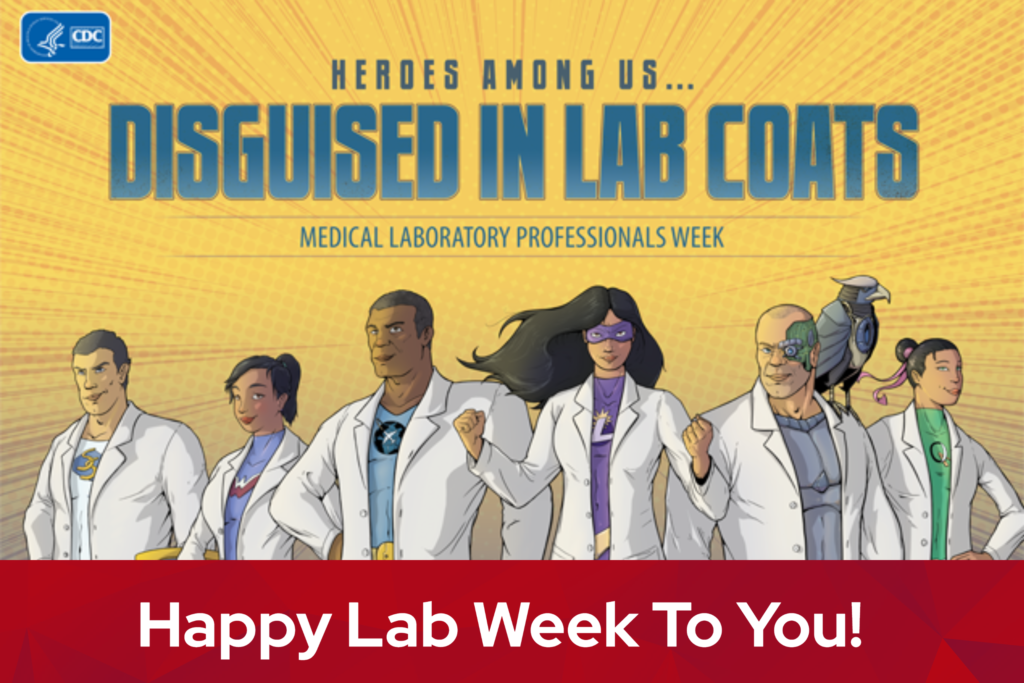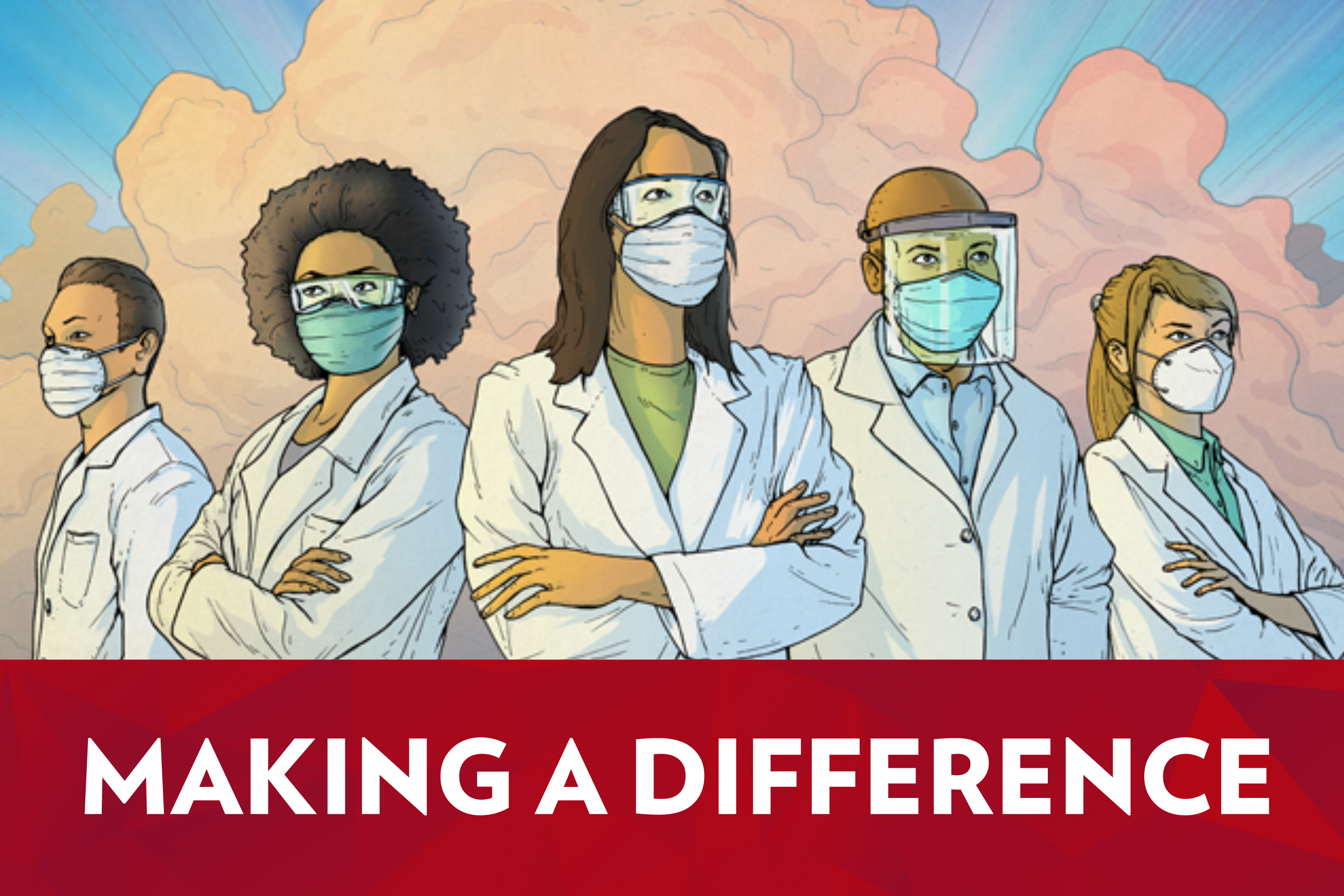Happy Medical Laboratory Professionals Week!
Medical Laboratory Professionals Week is a time when we increase public awareness of our profession, highlighting our contributions to healthcare. We also celebrate our staff by sharing our appreciation – laboratory professionals get results! This year, Lab Week is on April 23-29. Professional associations, like ASCP and ASCLS encourage us to honor and celebrate ourselves as well as our coworkers. There are lots of great ideas and resources for how to celebrate your coworkers. How do you celebrate yourself during Lab Week? In this article, WSLH Proficiency Testing shares a few ideas and resources that can help us cultivate an appreciation for ourselves (and each other) as medical laboratory professionals. Recognizing your unique contributions and sharing your appreciation with others, in turn, can deepen the public’s awareness of our important role in providing accurate, timely testing results.

Recognizing our value
We know our value in healthcare. There are statistics and other important information that show the public our impact. What is often even more impactful is sharing why and how we value what we do. When we take time to self-reflect, we strengthen our appreciation for ourselves. If we are able to better express our appreciation, others will appreciate us too.
Reflecting on our growth
You can start this process of self-reflection by thinking about how much you have grown as a laboratory professional. Your education and training have prepared you to perform complex tasks safely. You may look at trainings and courses and think about how they have helped you produce accurate, reliable, and timely results. Reflecting on your commitment to professional development can help you appreciate your contributions. With increased appreciation, you are more willing to share appreciation with others. Sharing your appreciation with the public invites them to recognize and celebrate what you do as a lab professional.
Go ahead, treat yourself
Thinking about the ways you have grown, or how you continue to challenge yourself is a great way to start brainstorming how to celebrate yourself during Lab Week. For example, maybe you helped develop a mentoring program to support new employees and strengthen teamwork. During Lab Week, you could play your favorite cooperative board game with your coworkers to celebrate teamwork. You know yourself best in what gives you a sense of accomplishment and satisfaction. Creating your own personal recognition activity can also support ways to recognize and celebrate coworkers and employees more meaningfully.
The power of employee recognition
When you encourage yourself and others to also celebrate in meaningful ways, you foster authentic connections and help others see their value as team members. In a recent survey on employee recognition conducted by Great Place To Work, 37% of respondents said that more personal recognition would encourage them to produce better work results more often. Neuroscience certainly backs up this statement, with research that illustrates how both predictable and randomized reward systems support happier, more motivated work environments. Below, we provide one example of how you can celebrate yourself in a way that helps everyone see the bigger picture, to see the contributions of laboratory professionals to quality patient care.
Expressing gratitude, expressing value
Practicing gratitude can be a great way to illustrate your unique contributions to quality patient care. For each day during Lab Week, try sharing 1-3 things that you are grateful for as a laboratory professional. Don’t forget, you can include your team members on this list! Write them down on paper, on a whiteboard, or post them on social media, for example. Expressing gratitude is one way you can share your role, experiences, and expertise. Sharing deepens awareness and increases our appreciation of our contributions. This simple practice can generate new perspectives, as you recognize how you personally value the profession. Who knows, you may have a positive experience that will compel your workplace to continue this practice with you, year-round. You may be surprised how simple expressions of thankfulness can inspire others to do their best in the workplace.
Conclusion
Recognition and celebration are powerful motivators that help us feel connected and engaged with our work. How you celebrate Lab Week this year can be a great way to set the tone for how you support yourself, year-round. The more recognition and appreciation we give each other, the more meaningful our celebrations will be. Sharing why you celebrate Lab Week also gives others a closer look at the importance of the medical laboratory profession. WSLH Proficiency Testing is grateful for your dedication and significant contributions to the health and safety of our communities. Happy Medical Laboratory Professionals Week from our team at WSLH PT to yours.
Learn more about Lab Week and download resources on the following websites:
American Association for Clinical Pathology (ASCP): Lab Week (ascp.org)
American Society for Clinical Laboratory Science (ASCLS): Medical Laboratory Professionals Week – ASCLS
American Medical Technologists (AMT): Celebrate Medical Laboratory Professionals Week



 We’ve all likel
We’ve all likel